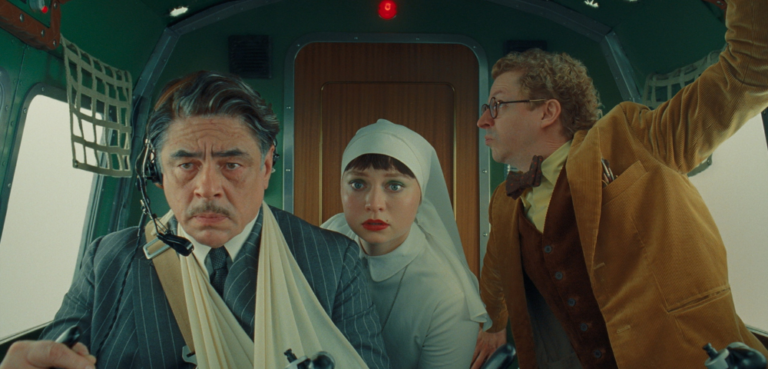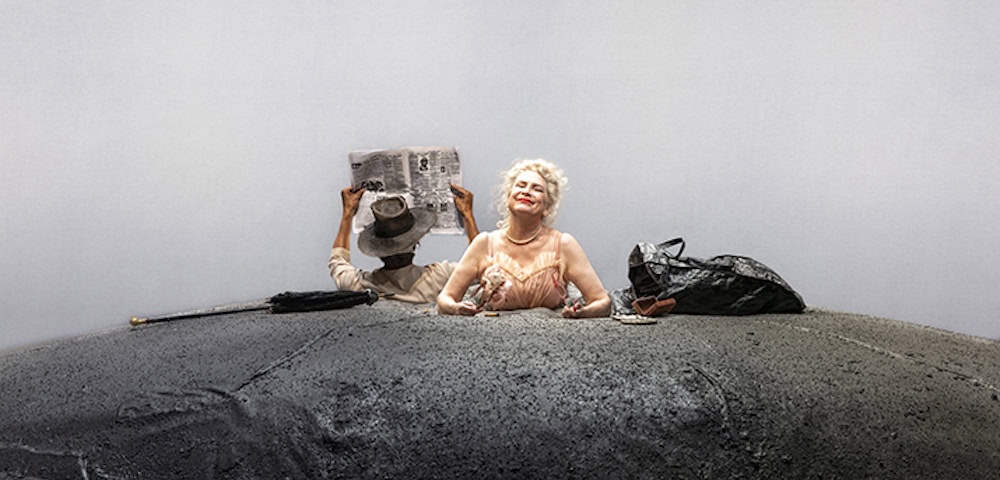
THE NEW ELECTRIC BALLROOM
Have you ever been unable to break a self-defeating pattern? Have you ever become stuck in retelling the same story about yourself? These are the main themes explored in The New Electric Ballroom through the characters, Breda, Clara and Ada, three sisters living in an Irish village, who constantly re-enact a heart-breaking night from their past. But when Patsy, a local fishmonger, enters their lives, the structure of their tightly-bound pattern begins to unravel.
Director Kate Gaul says the New Electric Ballroom was a dance where Breda and Clara went 40 years ago. In the present they are situated in their kitchen, where they have walled themselves in. Here, they re-enact the event of being jilted by the man they loved at this particular place.
“They were both broken-hearted, and they want to shield Ada from that experience,” says Gaul. “So they turned the colour off, they turned the lights off basically and decided to stay inside, because inside if you don’t have to deal with anything, then you can’t have your heart broken.”
In this enclosed world these three women tell stories to each other, a very limited range of stories that serve as protection from the outside world. However, Gaul believes that in the same way people want to be safe, we also want to know what’s outside the door. “Something’s gotta give at some point, and you’re going to ask questions: what is it like out in the rest of the world?” she says.
Jane Phegan, in the role of Ada, says the older siblings don’t go out anymore, so it’s up to the younger sister to make a living while also maintain distance from the rest of the village. This limited interaction, combined with the issue of, “trying to figure out what it is to be alive through those stories,” has severely constrained her life experiences.
“But on this particular day, something has changed,” says Phegan. “There’s something which says this isn’t going to be your usual day… And that’s where the usual pattern is put into disarray.”
Director Gaul believes what makes The New Electric Ballroom stand out as a play, and as a story, is its poetic, text-driven language, its imagination and its three roles for women, which each display a range of emotions. She also states it’s a very bizarre world; the world of the play itself is not the normal world we live, but rather, “a complete and utter left-of-centre interpretation of our lives.” Despite this, we will still recognise ourselves within it.
It’s no surprise The New Electric Ballroom possesses all these qualities. Penned by celebrated Irish playwright, Enda Walsh, renowned for his honest, lyrical language and dark humour, it serves as the companion piece to The Walworth Farce, a play that similarly explores an intense family dynamic and its subsequent implosion.
“I think the practical reasons were that the cast of The Walworth Farce were all men,” says Gaul in response to how it fits as a companion piece with this other play. “And he wanted to write something for women. But it is the same story, so in the same way that the characters in our play are destined to tell the same story, over-and-over again, the playwright is writing the same story over-and-over again too. But for what purpose? Well, that is the question isn’t it.”
Gaul continues that while the play is about these really deep things, it’s also a good yarn and humorously told in a very contemporary kind of way. Although the audience will have to work hard to stick with the story, in the end they will laugh, they’ll cry, they’ll be shocked and silenced.
Phegan adds that humour is also tantamount to the story. “Of course we want to create the feeling that you’re trapped in this room with these women and you get a sense of what that is,” she says. “But there’s no point in putting an audience through just that. So you have to have the flip side, which is this absolute, gorgeous humour; beautiful Irish, genuine humour.”
So what do they hope the audience takes away with them? “As long as they’re changed,” says Ms Gaul. “I think if they arrive as individuals and leave as an audience, then you’ve done your job. Hopefully, we do something that demands their attention – that would be my aim. Too much to hope for? Who knows.”
Mar 10-31, Griffin Theatre Company, SBW Stables Theatre, 10 Nimrod St, Kings Cross. $15-30, 9361 3817, griffintheatre.com.au










